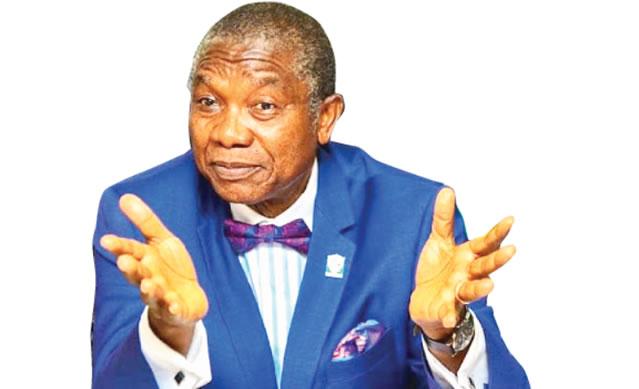Expert blames Nigeria’s slow pace for trade setbacks.

The founder and former chief executive officer of Neimeth Pharmaceutical, Sam Ohuabunwa, has criticised Nigeria’s tepid policy response to trade and franchising opportunities, warning that the country’s sluggishness is undermining its broader African and Caribbean trade ambitions.
Speaking during a media parley at the African Caribbean Franchise Exhibitions 2025 in Lagos on Tuesday, Ohuabunwa, a former president of the Pharmaceutical Society of Nigeria, expressed concern over what he described as a lack of urgency and official commitment from the government towards unlocking economic growth through innovative trade partnerships and franchising.
The African Caribbean Franchise Exhibitions 2025 will be held from July 3 to 5 at the Lagos Continental Hotel.
“There seems to be a reluctance on the part of the government, a partner that must be dragged into conversations on how to grow the economy and exploit the opportunities around us,” Ohuabunwa said.
There is insufficient policy focus on areas like franchising, which I see as a powerful mechanism for economic growth,” he added.
He argued that Nigeria and other African governments must do more to engage with the private sector to fill critical gaps in local production and services by partnering with foreign counterparts that have comparative technological or industrial advantages.
“We must seek out products, services, and technologies that we are unable to produce in sufficient quantities and collaborate with those who can help us bridge that gap. At the same time, we must identify areas where we have expertise and a competitive edge and proactively push these into new markets,” he said.
Drawing from his experience as former Chairman of the African Economic Summit, Ohuabunwa revealed that efforts to convene government participation in trade dialogues often hit a wall.
He cited the 2024 summit, which focused on intra-African trade, as an example of how ministries and agencies critical to trade development, such as the Ministry of Trade and the Nigerian Export Promotion Council, were notably absent.
“It was difficult to get the government to participate,” he said. “The people who should have been in the frontlines, the Ministry of Trade and the Export Promotion Council, were nowhere to be found. Their budgets should be directed at stimulating trade and industrialisation, but that’s not happening.”
Ohuabunwa called for a structural shift in government thinking, urging it to invest more strategically in franchising and trade-related sectors.
According to him, economic transformation cannot occur without investment, as investments lead to business growth, job creation, and ultimately, poverty eradication.
No economy grows without investment,” he stressed. “It is businesses that create jobs, and jobs generate wealth. Without understanding this cycle, it will be very difficult for Nigeria to achieve meaningful economic growth.”
He also emphasised the need for African and Caribbean countries to deepen collaboration by leveraging shared cultural and historical ties. The Caribbean, he noted, offers a natural partnership opportunity due to its cultural alignment with Africa, particularly Nigeria, in areas such as food, fashion, and entertainmen
We have so much in common with the Caribbean,” Ohuabunwa said. “They understand us better than many of our Western partners. We should explore what we can offer them and what they can offer us in return. Through strategic matchmaking and structured exhibitions like this, we can create tangible business opportunities.”
He commended the organisers of the African Caribbean Franchise Exhibitions for creating a platform to foster such connections and called on the media to amplify the call for more government action and engagement.
The media has a role to play in this advocacy,” he said. “We must get our governments to realise that they cannot be bystanders in this effort. Everyone must play their part; only then can we truly accelerate trade and development across Africa and the Caribbean.”








